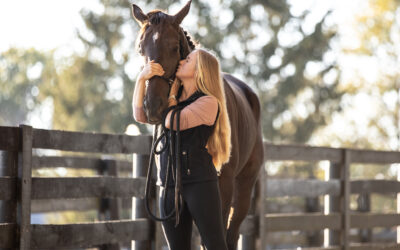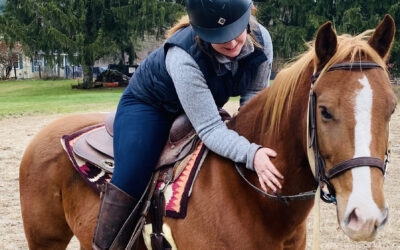Blog
Pilot Programs: Building Blocks to Success
Pilot Programs: Building Blocks to Success
Merriam Webster defines a pilot program as a small-scale, short-term experiment that helps an organization learn how a large-scale project might work in practice.
As a strategic funder, pilot programs are an important part piece of impactful grant making. Pilot programs allow us to implement new strategies and quantifiably gauge the success of the program before making a larger investment. By being mindful with our grant making, we are ultimately ensuring that we help the most horses possible.
We all know the value of the “schoolmaster;” the horse that has the patience, wisdom and kindness to teach impatient or novice riders. Horsemanship programs and equine assisted therapy programs consistently need these good, trained horses to meet their educational and programming needs. Horses in transition could fill this need; but the infrastructure to connect adoption organizations and these programs does not currently exist.
We partnered with Colorado State University’s Equine Sciences program to expand the model of the Regional Training Center into a new area of the industry at the Temple Grandin Equine Center. The horses come to Colorado State University from The Harmony Equine Center or other Right Horse partners. Students involved in the program have the option to enroll in a course to train the adoptable horses for one or two semesters. The students spend time working with the horses on the ground and in the saddle with the goal of preparing them for adoption into either a riding lesson program or an equine-assisted activities and therapy (EAAT) program.
The Temple Grandin Equine Center is an industry leader in equine assisted activities therapies, using the horse to heal, teach and improve the lives of individuals with physical, emotional or developmental challenges. The program integrates education, with the new pilot program giving undergraduate students the opportunity to get first-hand experience training horses for a career in the EAAT industry.
To our surprise and delight, we discovered that the new class filled before it was announced to the student body. The next generation of equine science students recognize the importance of this challenge and are eager to get involved. The course is now a full, permanent offering in the equine science curriculum with the program training and adopting out 10-20 horses per semester, including summer semesters.
Collectively, we see enormous potential with this program to enrich the lives of students by providing a unique hands-on educational training opportunity while also helping prepare and connect horses in transition with riding and therapy programs. The pilot program’s model helps alleviate the challenges of training horses from adoption centers, ultimately allowing them to save more horses and adopt them out to good homes.


